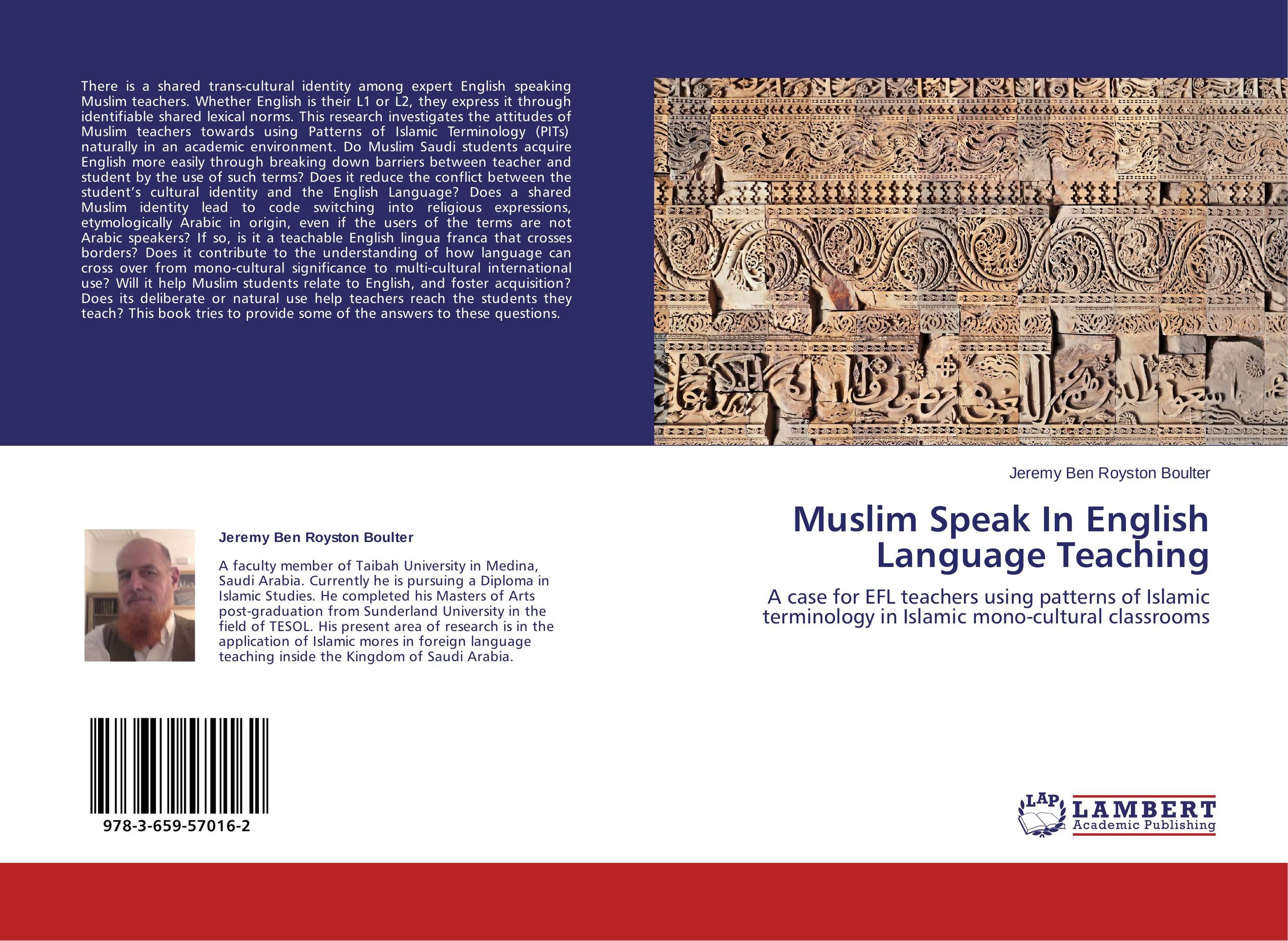| Поиск по каталогу |
|
(строгое соответствие)
|
- Профессиональная
- Научно-популярная
- Художественная
- Публицистика
- Детская
- Искусство
- Хобби, семья, дом
- Спорт
- Путеводители
- Блокноты, тетради, открытки
Muslim Speak In English Language Teaching. A case for EFL teachers using patterns of Islamic terminology in Islamic mono-cultural classrooms

В наличии
| Местонахождение: Алматы | Состояние экземпляра: новый |

Бумажная
версия
версия
Автор: Jeremy Ben Royston Boulter
ISBN: 9783659570162
Год издания: 2014
Формат книги: 60×90/16 (145×215 мм)
Количество страниц: 80
Издательство: LAP LAMBERT Academic Publishing
Цена: 25692 тг
Положить в корзину
Позиции в рубрикаторе
Отрасли знаний:Код товара: 137055
| Способы доставки в город Алматы * комплектация (срок до отгрузки) не более 2 рабочих дней |
| Самовывоз из города Алматы (пункты самовывоза партнёра CDEK) |
| Курьерская доставка CDEK из города Москва |
| Доставка Почтой России из города Москва |
Аннотация: There is a shared trans-cultural identity among expert English speaking Muslim teachers. Whether English is their L1 or L2, they express it through identifiable shared lexical norms. This research investigates the attitudes of Muslim teachers towards using Patterns of Islamic Terminology (PITs) naturally in an academic environment. Do Muslim Saudi students acquire English more easily through breaking down barriers between teacher and student by the use of such terms? Does it reduce the conflict between the student’s cultural identity and the English Language? Does a shared Muslim identity lead to code switching into religious expressions, etymologically Arabic in origin, even if the users of the terms are not Arabic speakers? If so, is it a teachable English lingua franca that crosses borders? Does it contribute to the understanding of how language can cross over from mono-cultural significance to multi-cultural international use? Will it help Muslim students relate to English, and foster acquisition? Does its deliberate or natural use help teachers reach the students they teach? This book tries to provide some of the answers to these questions.
Ключевые слова: Sociolinguistics, TESOL



